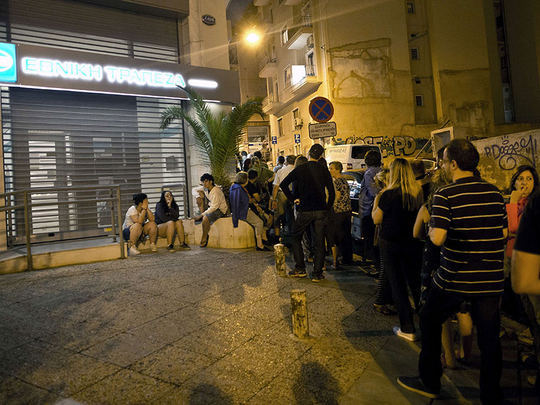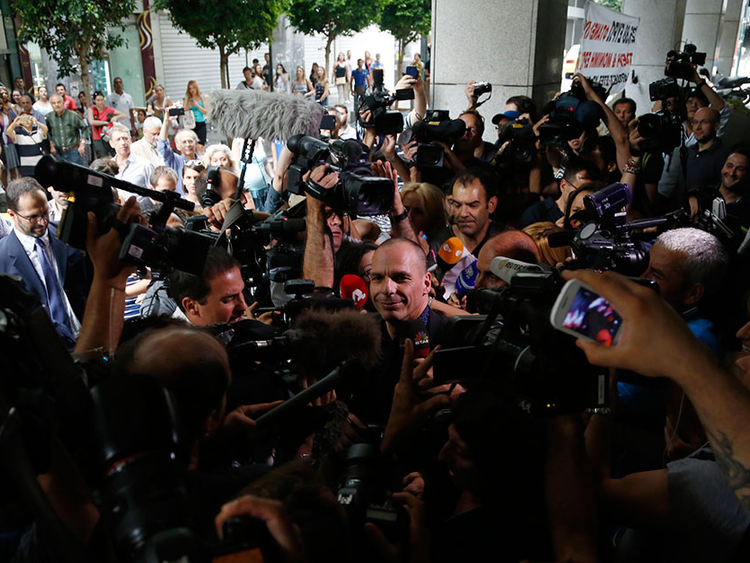
Athens, Frankfurt: The Greek financial stability council has recommended a daily cash withdrawal limit of 60 euros (Dh243) from Tuesday as banks were shut down from today, Monday, till Saturday.
Greece officially announces bank closures for six days, with limits on daily withdrawals set at 60 euros per day per person.
Greek banks and the stock exchange will be shut on Monday, after creditors refused to extend the country’s bailout and savers queued to withdraw cash, taking Athens’ standoff with the European Union and the International Monetary Fund to a dangerous new level.
Greece’s banks, kept afloat by emergency funding from the European Central Bank, are on the front line as Athens moves towards defaulting on a €1.6 billion (Dh6.6 billion) payment due to the International Monetary Fund June 30.
The European Central Bank added to the pressure by saying there would be no increase in its support of Greece’s crippled banking system. It was monitoring the situation and stood ready “to reconsider its decision”, the ECB added.
Amid drama in Greece, where a clear majority of people want to remain inside the euro, the next few days present a major challenge to the integrity of the 16-year-old Eurozone currency bloc.
The consequences for markets and the wider financial system are unclear.
“It is a dark hour for Europe ... nevertheless from where we’re sitting we have a clear conscience,” Greek Finance Minister Yanis Varoufakis said in an interview with the BBC. Of bank closures and capital controls he said: “This is a matter that we’ll have to work overnight on with the appropriate authorities both here in Greece and [with the ECB] in Frankfurt.”
The finance ministry later issued a statement saying capital controls were not the government’s preference.
Greece’s left-wing Syriza government had for months been negotiating a deal to release funding in time for its IMF payment. Then suddenly, in the early hours of Saturday, Prime Minster Alexis Tspiras asked for extra time to enable Greeks to vote in a referendum on the terms of the deal.
‘Merkel holds key’
Greek Finance Minister Yanis Varoufakis said Sunday that German Chancellor Angela Merkel “holds the key” to resolving his country’s crisis, while stressing Athens remains open to further talks with international creditors.
“The EU leaders must act. And among them she, as the representative of the most important country, holds the key in her hand. I hope she uses it,” he told Germany’s Bild newspaper.
He added that Athens was ready for “new proposals by the institutions” — the EU, European Central Bank and International Monetary Fund — ahead of a Greek referendum on bailout terms set for next weekend.
“As far as we are concerned, we remain ready to negotiate in the time in which the people must reach their assessment” before July 5, he said in pre-released excerpts of an article from Monday’s edition.
Varoufakis said Athens had called the referendum because it rejected the terms for more bailout money demanded by the creditors.













